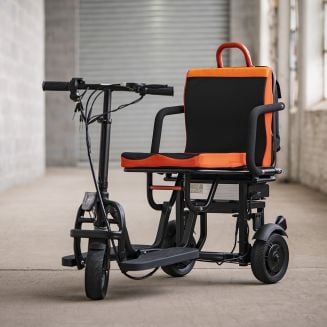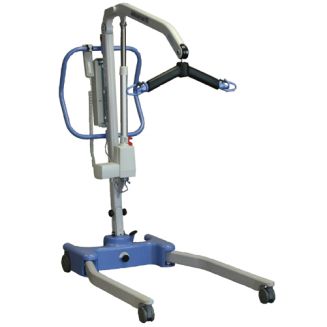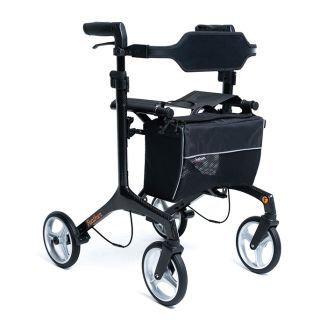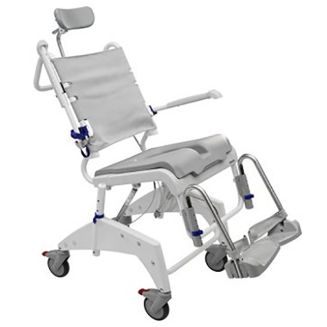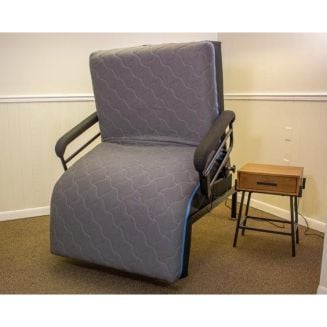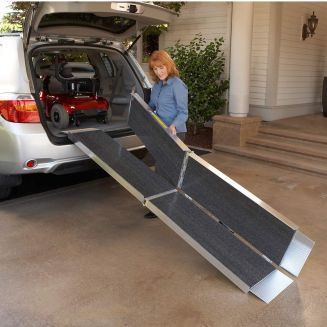Welcome to 1800Wheelchair.com Spring '23 Scholarship
Topic
Wheelchairs are an important tool for people with mobility impairments, but they can also be a source of frustration and isolation. In this contest, we want you to use visual poetry to explore the challenges and triumphs of wheelchair mobility.
Statement from 1800wheelchair
1800wheelchair is very proud to announce the winner of our Spring '23 Scholarship contest. Though the competition among our dozens of entries was tough, this piece won the judges over with its refined visual representation and strong storytelling in the personal statement.
Winning Submission
About the Author
My name is Sandra K. I graduated from Council Rock High School in June, 2023 and will be starting my college education at Susquehanna University this fall. I will be studying Special Education and History in order to obtain my teaching certifications in both areas and look forward to a career in Education.
About the Work
The title of my visual poem is “Perception vs. Reality”. My poem shows the perceptions of others (and even myself) that I have had to face when using a mobility device versus the reality of who I am as a person, triumphant, strong and independent. Wheelchairs and other mobility devices have offered me independence and freedom rather than being stuck and dependent.
Visual Poem:
"Perception vs. Reality"
Personal Statement
I couldn't take a deep breath. My eyes were shut tight but tears still escaped and slid down my face . I had fallen out of my chair. My head was banging against the floor. Thud. Thud. Thud. My legs trembled and shook. All eyes were on me. The teacher called the nurse and then sat next to me. She whispered encouragement as she protected my head; it was not her first experience with my FND.
There are many stories just like this: the fear Mr. Simon felt when I fell over shaking in his class, the time I became immobile when decorating the christmas tree, the ambulance visit to the swim club, or when I navigated New York City with a cane. That's just a few of the many stories I could tell about the symptoms of this disorder.
After months of being told these physical symptoms were "all in my head" I received the diagnosis of Functional Neurological Disorder or FND. FND Hope International is a global charity that researches and supports people with this disorder, and defines FND as "a problem with the functioning of the nervous system and how the brain and body send and receive signals".
This looks different for everyone with the diagnosis, but for me this disorder causes a variety of episodic symptoms. Some symptoms I experience include: non-epileptic seizures, tremors, dystonia, and gait and balance disturbances.
When I first began experiencing symptoms, every aspect of my life was impacted. I missed school, left orchestra and theater rehearsals early, failed to complete homework assignments, and took breaks during volleyball practices.
Since then I have learned to manage my time and resources so that I can live life the way I want. I take medication to help reduce physical symptoms and regularly have appointments with my psychologists and psychiatrist to manage this disorder. To be successful at school, I have a 504 plan and have learned to advocate for myself and communicate with my teachers. I go to bed earlier than my peers to get eight to ten hours of sleep to give me the strength to get through each day. I have a limited stamina, even with more sleep, and I experienced many symptoms when I returned to full-time, in-person school after months of virtual and hybrid learning models.
With the support of my parents and guidance counselor, I adjusted my schedule so that it was more manageable for me. I know my body so much better now, but I still experience symptoms.
At times I need mobility assistance - a cane, a wheelchair, a motorized scooter. With all of these supports in place, some careful planning, and good communication I've been able to do well in school and participate in a number of extracurricular activities despite the unpredictability of these episodic symptoms. I am a thriving teenager thanks to the people around me that have helped me manage my disability.

